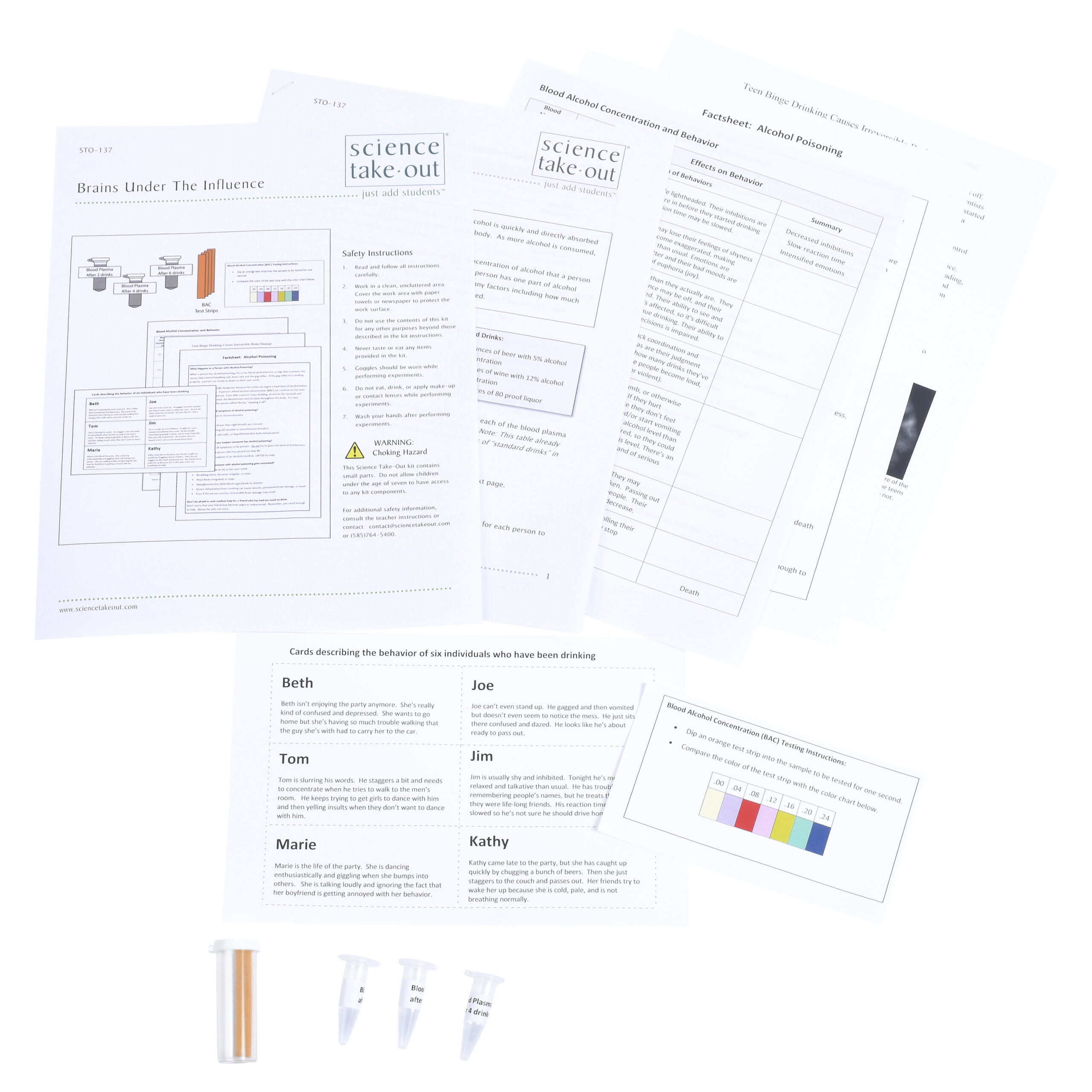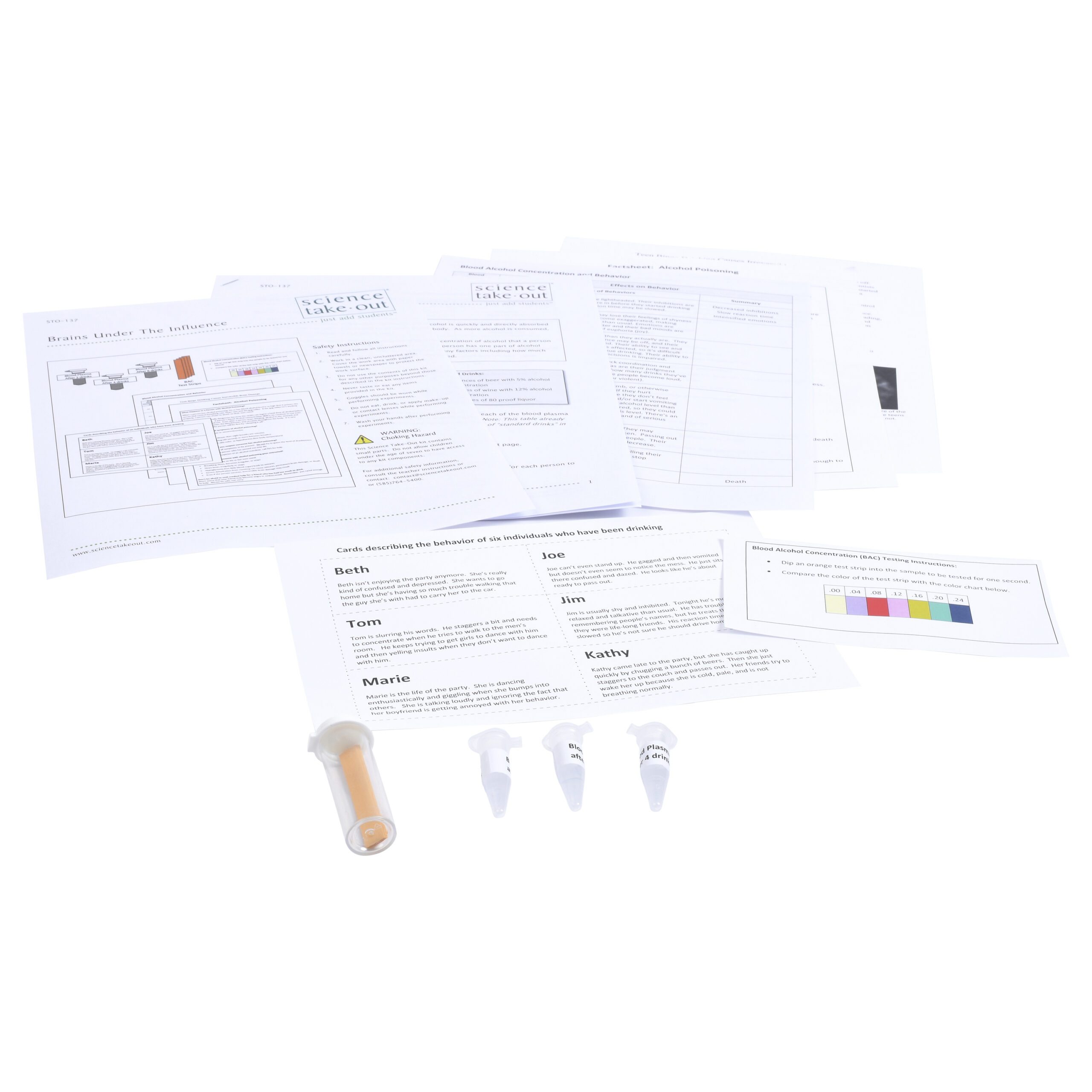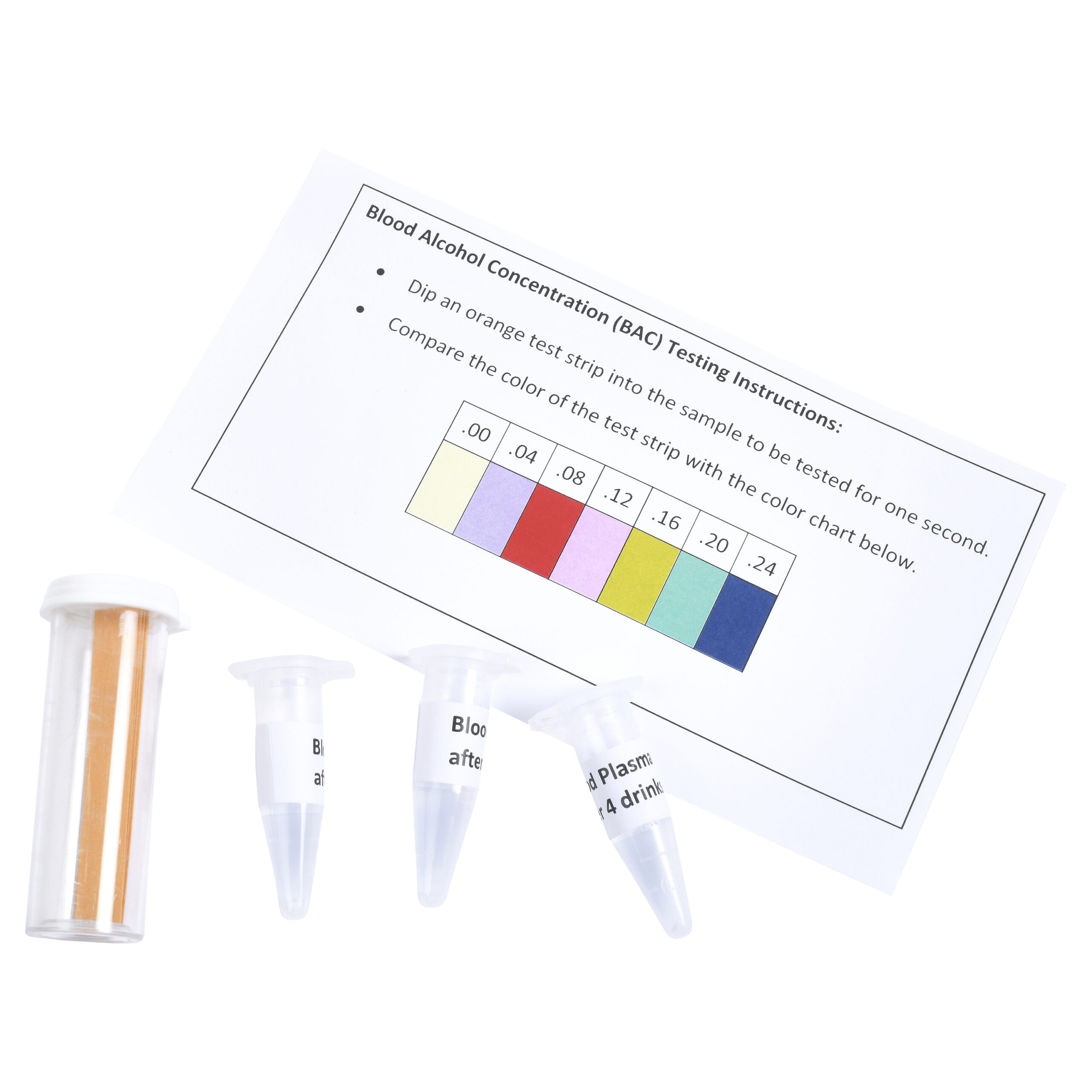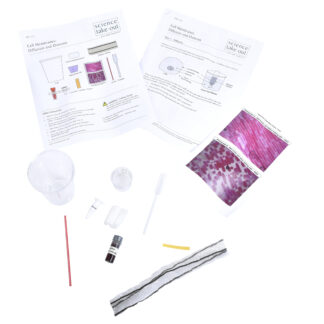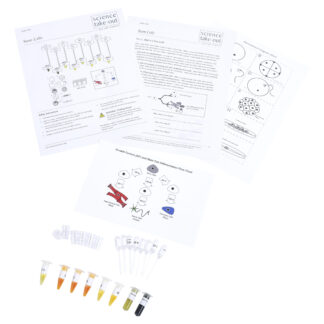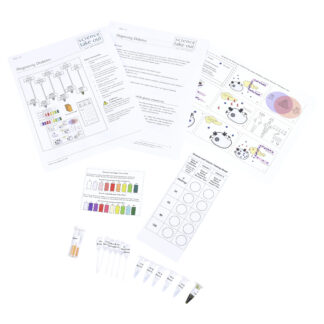Brains Under the Influence
$12.95 – $92.95
What factors affect blood alcohol concentration?
Conduct simulated blood alcohol tests and learn about alcohol poisoning and the effects of binge drinking on teens’ brains.
- Collect and graph data on the effect of alcohol consumption on blood alcohol concentration.
- Match the information from six mini-cases with the parts of the brain affected by alcohol.
- Learn about research that links teen binge drinking to irreversible brain damage.
Kit Includes
- Student instructions
- 3 tubes of simulated “blood plasma” samples after 2, 4, and 6 drinks
- 3 simulated “Blood Alcohol Test Strips”
- Blood Alcohol Concentration (BAC) Testing Instructions
- Factsheet on alcohol poisoning
- Article on teen binge drinking
- Sheet of mini-case cards describing the behaviors of six individuals after drinking
Quantity Discounts
Kits:
- 1 – 9 kits: $12.95 each
- 10 – 24 kits: $12.30 each
- 25+ kits: $11.66 each
Unassembled:
- 1 – 9 packs: $92.95 each
- 10+ packs: $88.30 each
Refills:
- 1 – 9 packs: $45.95 each
- 10+ packs: $43.65 each
Correlation to Next Generation Science Standards (NGSS) Shop by NGSS »
Performance Expectations:
MS-LS1-3. Use argument supported by evidence for how the body is a system of interacting subsystems composed of groups of cells.
Science & Engineering Practices
Engaging in Argument from Evidence - Use an oral and written argument supported by evidence to support or refute an explanation or a model for a phenomenon.
Disciplinary Core Ideas
LS1.A: Structure and Function - In multicellular organisms, the body is a system of multiple interacting subsystems. These subsystems are groups of cells that work together to form tissues and organs that are specialized for particular body functions.
Crosscutting Concepts
Systems and System Models - Systems may interact with other systems; they may have sub-systems and be a part of larger complex systems.
